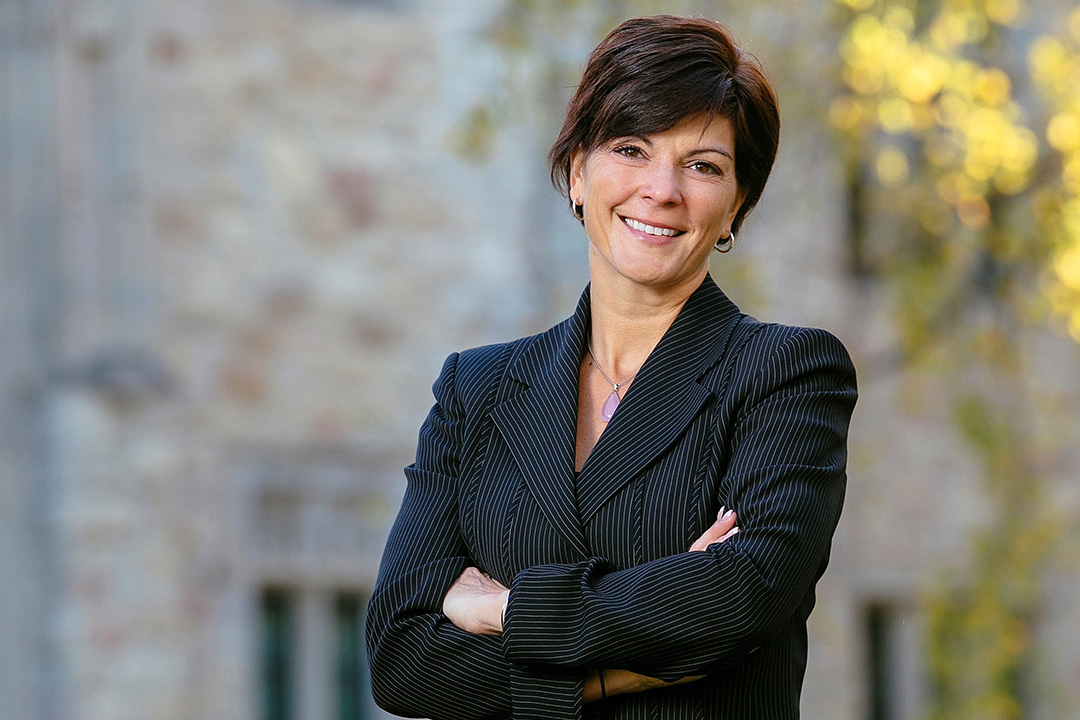“There were so many things that were going well here to start with, but we really took an honest look at what we were doing well and what we needed to improve upon,” said Dr. Michelle Prytula (PhD), dean of the College of Education. “We worked hard at it, and to be honest, it is a pretty wonderful feeling for that work to be paying off.”
The latest Maclean’s rankings of Canadian university programs provided affirmation that the college is on the right track. In the magazine’s 2019 rankings, USask’s education program’s reputation skyrocketed from 18th to fifth in the country.
“Rising that many spots was phenomenal,” said Prytula. “I just think it reflects the fantastic work of the faculty and staff who have really dug in these past few years. I think having the program reputation ranking go up that much it is a direct result of what we have been working on. It is nice recognition, but not a huge surprise, given all of the things that we have been doing.”
Prytula points to a number of new initiatives, programs and partnerships for improving the program’s reputation and as an increasingly desirable destination for students.
“Our applications continue to rise,” she said. “Our undergraduate program received over a thousand applications last year for fewer than half that number of seats available. As a result, our academic average for entrance to our undergraduate program has increased. This year, our early admissions average is now 80 per cent, and that is due to the faculty and staff here rolling up their sleeves and working hard. I am so proud of their work.”
Prytula said the college’s move to begin direct admissions in 2015—giving students the option to begin education classes in Year 1 rather than entering the college in Year 3—has been an overwhelming success.
“The decision to move to direct admissions has had a great impact on our programming, and that decision was a response to what our field, what our current students, and what our prospective students were asking for,” said Prytula. “Our enrolment in the college has doubled because of the direct admissions, so we now have over 1,600 students in our college. Our halls are full of life here.”
Program enhancements have also been well-received, including expanding the practicum experiences for student-teachers.
“We diversified our practicum experiences in a number of ways,” said Prytula. “Now, students have a practicum in each of Years 2, 3, and 4, which is an exciting opportunity for them. And with those practicum experiences, we strive to make sure that one is in an urban setting, one is in a rural setting, and one is in a school with a high Indigenous population or in a First Nations setting. And in Year 4, students can also complete six weeks of their 16-week practicum internationally, or they can work in an adult education or early-learning setting. So, our students graduate well-rounded and ready to hit the ground running, and our partners are noticing.”
The college has continued to build on its successful history of Indigenous programming on- and off-campus that includes the Indian Teacher Education Program (ITEP), serving First Nations students since 1972, and the Saskatchewan Urban Native Teacher Education Program (SUNTEP), established in 1980 to support Métis students. In 2018, the college, ITEP and the Kahkewistahaw First Nation signed a memorandum of understanding to expand education programming to Treaty 4, with the college now also offering an Indigenous Language Certificate to help train teachers who will be working in Cree and Michif.
“We are now working on immersion programming, which includes striving to be an institution that produces Indigenous language immersion teachers,” said Prytula. “We have also added mandatory Treaty education, as well as a course on FNMI (First Nations, Métis, Inuit) inclusion in our curriculum, which are critically important responses to the Truth and Reconciliation Commission report Calls to Action. And we have Indigenous off-campus graduate programs, which complement our ITEP on-reserve programming.”
The college has continued its evolution in 2019, with University Council on Jan. 17 approving two new graduate programs—Doctor of Education (EdD), and the Master of Education in Health Professions Education—effective this May, adding more breadth to the range of programs available, from certificates to bachelor’s and master’s degrees, to PhD and EdD options.
On Feb. 8, the college and the provincial government also announced the addition of the Early Childhood Education (ECE) option in the bachelor’s program, giving students the choice of three specializations: early childhood, elementary/middle years, or secondary. Supporting the provincial government’s Education Sector Strategic Plan, the new ECE program focuses on pre-kindergarten to Grade 3 preparation, with eight new courses starting in 2019/20.
“We have diversified our program significantly over the past five years, and all of this was in direct response to what students wanted,” said Prytula. “Watching the faculty and staff be that nimble and responsive and ready to have the program meet the needs of students, I think has had a marked impact on how people see us.”
Prytula said new graduates are also benefiting from the establishment of the co-curricular record that the college piloted in 2017, an initiative that highlights work outside the classroom to help in the job-hunting process.
“When our students graduate, not only do they receive their transcript of grades, they also receive a transcript of their professional development, student leadership and extracurricular activities in which they engaged during their four years,” said Prytula. “So, when they arrive for a job interview, the HR superintendent knows that not only were their grades strong, but they come with all of this other experience, and that is a value-added bonus for hiring. It’s another way we can help our students be hired and successful as teachers.”
